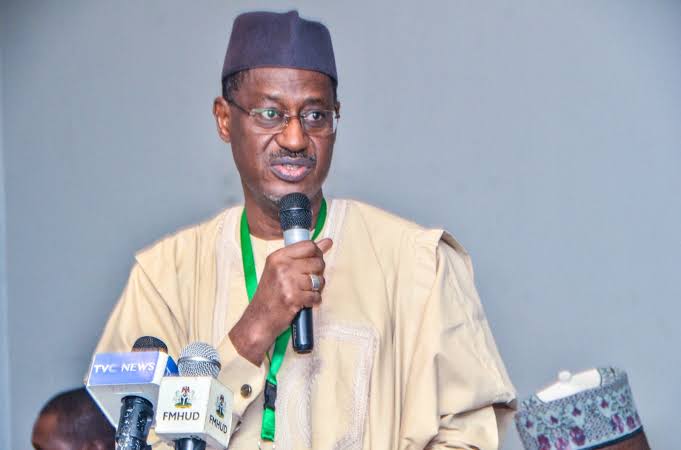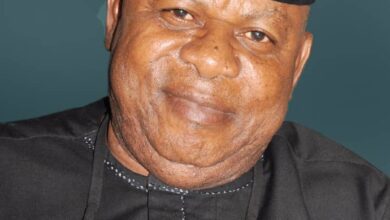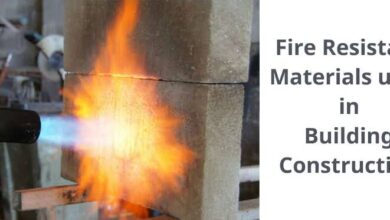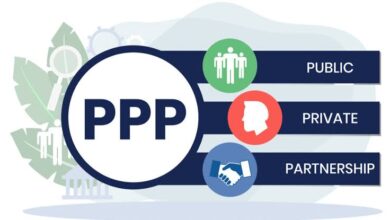Minister reaffirms FG commitment to building materials hub in six geo-political zone

By: Tijani Salako.
The Minister for Housing and Urban Development, Arch. Ahmed Musa Dangiwa has reaffirmed that the FG initiative on the establishment of building materials manufacturing hubs in the six geo-political zones is aimed at reducing the cost of building materials significantly for the enhancement of affordable housing in Nigeria.
Following the constant high cost of imported building materials which is directly hinged on the spike of the cost of houses and properties across the country, attributed to the unification of the forex market and policy fluctuations.
The minister made this assertion at an engagement it organized with stakeholders in the housing sector recently.
The trend has made it difficult to achieve affordable housing and the federal government’s efforts to drive housing initiatives in both urban and rural areas.
However, the federal government had in 2024 hinted at establishing manufacturing hubs to curb the importation of building materials and eventually reduce the high cost of building materials.
Arch. Dangiwa emphasized that boosting local production and implementing strategic fiscal incentives would lower housing construction costs and improve accessibility to affordable housing.
“Fiscal incentives are among the most effective tools available to us. These include tax reductions for local manufacturers, customs duty waivers for importing machinery and raw materials, grants and subsidies to scale up production, access to affordable financing through low-interest loans, and public-private partnerships (PPP) to drive innovation and growth,” he stated.
He further disclosed that the building materials manufacturing hubs would be established in existing trade zones because they offer significant advantages such as tax incentives, reduced regulatory burdens, and market access.
Standard Times Newspaper monitored that, Minister of State for Housing and Urban Development, Rt. Hon. Abdullahi Yusuf Ata revealed that the hubs would be strategically located in states such as Abia, Ogun, Kwara, Kano, Gombe, and Delta, with each hub serving its respective zone, adding that the initiative would enhance production capabilities, vocational training,g, and innovation.
To ensure the effective implementation of these hubs, the Federal Ministry of Housing and Urban Development will establish a central oversight committee chaired by the honorable minister, with representatives from state governments, universities, vocational institutions, and industry unions.
Standard-Times learned that the Vice Chairman of the Senate Committee on Lands, Housing and Urban Development, Senator Victor Umeh, assured that the National Assembly would support legislative and policy incentives to facilitate the smooth take-off of the hubs.
He identified key areas requiring legislative backing, including tax relief, import duty waivers, subsidies for local manufacturers, access to low-interest financing, infrastructure support, and research and development.
Similarly, the Chairman of the House Committee on Regional Planning and Urban Development, Hon. Abiante Awaji, urged stakeholders to develop practical and sustainable solutions that would benefit Nigerians.
In his welcome address, the Permanent Secretary of the Federal Ministry of Housing and Urban Development, Dr . Shuaib Belgore, emphasized that the engagement was an opportunity for stakeholders to deliberate on innovative solutions, incentives, and policies that would attract investment into the local building materials industry.
Dr. Belgore outlined key areas of focus for discussions to include enhancing local production through policy and regulatory support, improving infrastructure and transportation networks, addressing energy costs, promoting sustainability, building capacity, and skills, increasing access to financing, and optimizing the demand and supply of alternative building materials.
The stakeholders’ engagement provided a platform for robust discussions aimed at positioning Nigeria’s building materials industry for sustainable growth, job creation, and improved housing affordability.
Meanwhile, the past president of the Real Estate Developers Association of Nigeria (REDAN), Alhaji Aliyu Wamakko, stated that over 90 percent of building materials in the country are imported. “Nigeria cannot address the challenge of the high cost of housing without addressing the issue of local production of building materials because you don’t expect importers to import products at a very expensive rate and build cheap houses.”
He said there is an urgent need to look into local content production in the property sector, especially now that the federal government is championing its real estate homes agenda.




